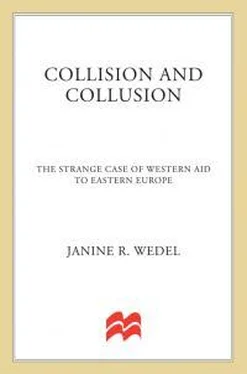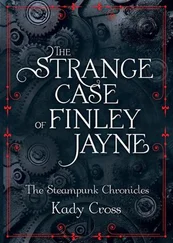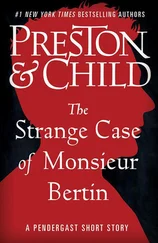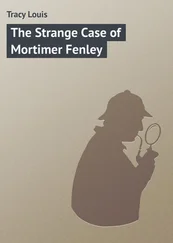
The author and publisher have provided this e-book to you for your personal use only. You may not make this e-book publicly available in any way. Copyright infringement is against the law. If you believe the copy of this e-book you are reading infringes on the author’s copyright, please notify the publisher at: us.macmillanusa.com/piracy.
Please note that some of the links referenced in this work are no longer active.
CONTENTS
Title Page
Copyright Notice
Dedication
Acknowledgements
Acronyms
Maps
A Note about Terms
A Note about Interviews
Introduction: Some Enchanted Era
Chapter I: East Meets West: A New Order for the Second World
Chapter II: Consultants for Capitalism
Chapter III: A Few Favored Cliques
Chapter IV: A Few Good Reformers: The Chubais Clan, Harvard, and “Economic” Aid
Chapter V: A Few Good Financiers: Wall Street Bankers and Biznesmeni
Chapter VI: Insights from the Second World
Appendix 1: Tables
Appendix 2: Methodology
Appendix 3: Interviews
Appendix 4: Economic Aid to Russia
Players
Institutions, Organizations, Commissions
GAO Chart: Organizational Profile of the Harvard Institute for International Development
Notes
Selected Bibliography
Index
Copyright
To my parents
ACKNOWLEDGEMENTS
I have been following the aid story in Central and Eastern Europe since 1989. I am grateful to the Council for the International Exchange of Scholars for the two terms in Poland as a Fulbright scholar during 1989-90 and 1991-92 that piqued my interest in the topic. My subsequent, more systematic, study would not have been possible without research and writing support provided by the National Science Foundation, the John D. and Catherine T. MacArthur Foundation, the Woodrow Wilson International Center for Scholars, the Friedrich Ebert Stiftung, and the Kosciuszko Foundation. I am greatly indebted to these institutions.
The project has been intense and ambitious in its breadth, scope, information-gathering, and fieldwork. Crucial to the conduct of this nearly ten-year project was the help of so many people who granted interviews, located materials, and checked facts, not all of whom wished to be named here.
A number of people and institutions provided administrative and logistical help in my places of fieldwork: In Poland, Pani Antonina Dachów, Michał and Irena Federowiczowie, Aśka Mikoszewska, and Jacek Poznański and the Council of Ministers; in Bratislava, Ellie Sutter; in Russia, Debbie Seward, Svetlana Glinkina, Boris Greenberg, Masha Zolotukhin, and Vadim Ivanov and the Institute for the Economy in Transition; in Ukraine, Grigory Gubsky, Marta Kolomayets, and Ian Brzezinski; in Berlin, Yvonne Barber; in Bonn, Beth Pond; and in Belgium, Deanne Lehman and Benno Barnard.
Invaluable support in the United States was provided by Catherine Allen and the Department of Anthropology, Joseph Tropea and the Department of Sociology, and James Millar and the Institute for European, Russian, and Eurasian Studies, all of The George Washington University. I also very much appreciate the support of Carolyn Ban, dean of the Graduate School of Public and International Affairs at the University of Pittsburgh, my new academic home, and other colleagues at the school.
I am especially grateful to Vivian Keller for her skilled organizational help at crucial points of manuscript preparation. I also would like to acknowledge Lynne Taylor, Karen Coats, and Paul Smolarcik for editorial help, and my mother and father, Dolores and Arnold Wedel, for indexing the book. I wish to thank Chris Caltabiano, Katrina Greene, Anthony Gualtieri, Haley Hendrickson, Christina Herzler, Erind Pajo, Martina Pechova, and Doug Pyle for research assistance.
I was fortunate to have the help of talented readers. I am especially indebted to Jeff Dumas, Chris Hann, Bill Harwood, Antoni Kamiński, Phil Parnell, and Adam Pomorski. Igor Barsegian, Michael Bernstam, Steve Collier, Stephen F. Cohen, Gerald Creed, Steve Ebbin, Dan Guttman, Michael Illner, Kristine Kassekert, David Kideckel, Dave Lempert, Dave Mathiasen, Erind Pajo, Elena Petkova, Karla Scappini, Brian Wickland, Anne Williamson, and Lou Zanardi also provided valuable guidance on issues in the manuscript.
I am grateful to Chris Suddick for her creative cartoons and willingness to work with me on the project. And I wish to thank Karen Wolny, my editor, and Diana Finch, my agent, for their support.
Throughout the project, many people assisted in selfless and gracious ways. I am indebted to Igor Barsegian, Nancy Dunne, Renata Frenzen, Charles McMillion, Ron Potter, Karla Scappini, and, as always, especially to Jeff Dumas and Adam and Basia Pomorscy for their generous help and abiding interest.
Although many people helped with the project, any shortcomings in the final product are my responsibility alone.
ACRONYMS
ACAP
American Committee for Aid to Poland, Washington, D.C.
AID
Agency for International Development (also known as USAID)
CCET
Centre for Co-operation with Economies in Transition, OECD, Paris
CIPE
Center for International Private Enterprise, Washington, D.C.
CSO
Clearing and settlement organization
EBRD
European Bank for Reconstruction and Development, London
EC
European Commission, Brussels
ECU
European Currency Unit
EU
European Union
EURO
European Monetary Unit
FIP
Forum for Nongovernmental Initiatives, Poland
FTUI
Free Trade Union Institute, AFL-CIO
G-24
Group of Twenty-Four (Canada, United States, Japan, Australia, New Zealand, Austria, Belgium, Denmark, Finland, France, Germany, Greece, Iceland, Ireland, Italy, Luxembourg, Netherlands, Norway, Portugal, Spain, Sweden, Switzerland, Turkey, United Kingdom)
G-7
Group of Seven (Canada, France, Japan, United Kingdom, Germany, Italy, United States)
GAO
General Accounting Office (U.S. government body)
GKI
Goskomimushchestvo or State Property Committee (Russian government body responsible for privatization)
GKOs
Russian short-term treasury bills
HIID
Harvard Institute for International Development, Harvard University
HMC
Harvard Management Company, Harvard University
IBRD
International Bank for Reconstruction and Development (also known as World Bank)
IDA
International Development Agency, Poland
ILBE
Institute for Law-Based Economy (USAID-funded organization in Russia)
IMF
International Monetary Fund
IQC
Indefinite Quantity Contract (contracting mechanism under USAID)
ITCA
International Team for Company Assistance (American consulting firm)
JRL
Johnson’s Russia List (Internet mailing list, davidjohnson@erols.com )
KPN
Konfederacja Polski Niepodległej, or Confederacy of Independent Poland (Polish political group)
LPC
Local Privatization Centers (USAID-funded organizations in Russia)
NACC
North Atlantic Cooperation Council
NATO
North Atlantic Treaty Organization
NDI
National Democratic Institute for International Affairs, United States
NED
National Endowment for Democracy, United States
NGO
Nongovernmental organization
NIK
Najwyższa Izba Kontroli (Supreme Control Board), Poland
NIS
Newly Independent States (successor countries of the Soviet Union)
Читать дальше













